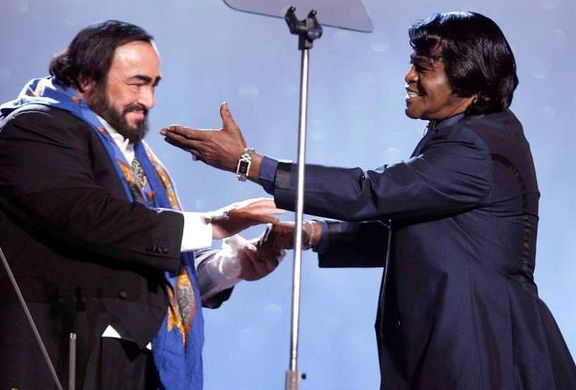Well, there’s not much I can say about Pavarotti that others aren’t better qualified to say. He is one of those figures that steps out of a genre. People who hardly ever listen to jazz know Louis Armstrong, people who hardly ever listen to opera know Pavarotti, who successfully stepped into the shoes of Caruso as the ambassador of opera to the broad public. He fulfilled the role brilliantly, using his comical, un-threatening appearance to advantage. It was as if your favourite jolly uncle had super-powers, which he only used after dinner. On hearing of his death, I played his wonderful duet with James Brown, and his rather peculiar one with Lou Reed. Then I went through Pavarotti’s Greatest Hits, with his famed arias from Rigoletto and L’élisir d’Amore, among others. Then I played his album of Neapolitan folk songs, O Sole Mio, and his album of Christmas carols, O Holy Night. Over the course of the next two days, I played a few entire operas in which he starred: Bellini’s Beatrice di Tenda, and I Puritani, where he sang with Joan Sutherland, one of the few women with the stature and lung power to stand up to him in the ring; as well as an early performance of Puccini’s La Bohème, with Freni, directed by von Karajan.
The Death of Pavarotti
Leave a Comment
You must be logged in to post a comment.

0 Comments.